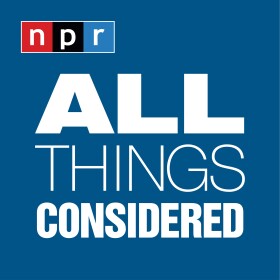
Weekend All Things Considered
Saturday and Sunday afternoons at 5
Missed All Things Considered this weekend? Don't sweat it! While you were out enjoying your weekend, the team was putting together a killer set of Saturday and Sunday shows. Here's the best of what you might've missed, from in-depth cover stories to quirky science, from thought-provoking author interviews to rockin' performance chats.

